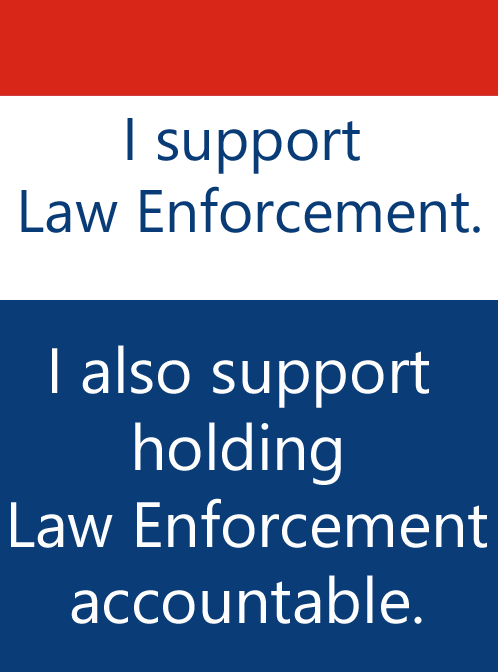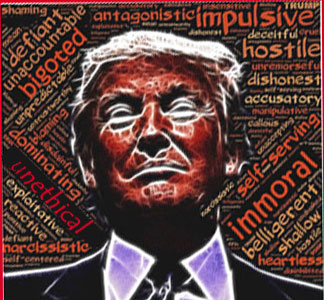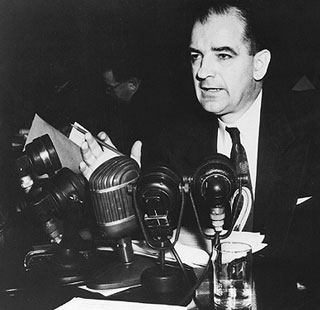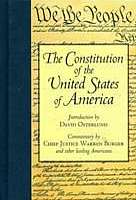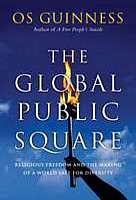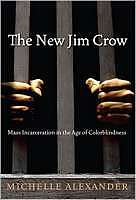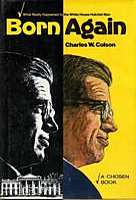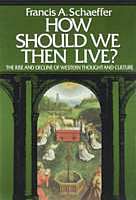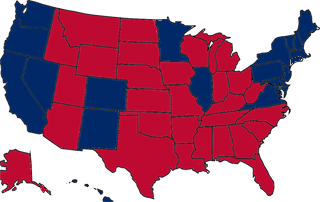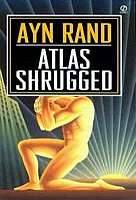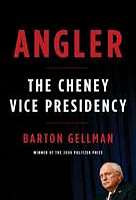 Politics-Government
Politics-Government
Supporting Law Enforcement
I have always supported law enforcement - it is a basic need in a country governed by laws, and our police put themselves at risk to enforce the laws on our behalf. For this the police deserve our appreciation and our full support. Yet full support is not unconditional support. Police wield a great deal of power, and they sometimes abuse that power; when they do, they, like anyone else who is in a position of public trust, must be held accountable.
Apocalyptic politics
Donald Trump's latest international provocation, the decision to move the U.S. embassy in Israel to Jerusalem, marches Trump-backing evangelicals a step closer to their deeply held desire for the fulfillment of Biblical end-times prophecies. A recent CNN article by Diana Bass suggests that, for many evangelicals, Jerusalem is about prophecy, not politics. I would partially agree: It is about prophecy, but it is also explicitly about politics.
Citizenship: Making sense of hysteria
With the never-ending wave of hysteria being promulgated daily in the news media and on the internet, how do we make sense of it all? How do we deflect the emotional pull of anger, greed and hate, all cousins of fear, that are often brought to us by those who wish to drown our better selves in the worst emotions, so as to persuade us to think or act in some certain way? How do we find a way to think and act responsibly when our politicians, pundits, preachers, programs and parents promote their agendas, at times with little regard for truth or ethics or morality, while with the deepest cynicism, couching their points of view in the language of truth and ethics and morality?
Crude, Rude, and Impolite
Today's Republican Party, in choosing a clearly unqualified candidate for the presidency, in choosing to wallow in the deepest trough of political mud in my memory, in choosing to embrace the grossest of lies and the most laughable of conspiracies, in choosing to generate fear and hatred instead of exercising civilized, reasoned judgment, has embraced my 5th grade teacher's admonishment for a ten year old's bad behavior: "Crude, rude and impolite".The Law of Political Scruples
In the world of politics, the degree to which scruples are exercised is in inverse proportion to the degree to which moral rectitude is claimed.
What could be more fun than to use some dry mathematical humor to add some refinement to this political epigram? And so is born the Law of Political Scruples.Political epigrams
In the world of politics, the degree to which scruples are exercised is in inverse proportion to the degree to which moral rectitude is claimed.
Political ideologies, or ideologies wielded in the service of politics, share the property that they can erase any reality that contradicts them.
(1). See also The Law of Political Scruples.There is "spin", and there is bearing false witness
One of the most difficult things for me is to watch politicians, governments, corporations, and organizations of all stripes, tell lies in order to persuade their intended audience to support them. This is clearly a naive reaction on my part: Why be perpetually bothered afresh by something that is pervasive and nearly universal? After all, "everybody cheats", and the most important thing for these entities is that they survive, they prevail, or that their influence waxes rather than wanes, not that they do the "right thing". To this question I have no pragmatic answer, except to say that I believe that honesty has more potential to make people and organizations successful, to make the world that more loving place called for by the major religions, than does the selfish manipulation that is the lie. The lie all too often gets you what you want, but at what cost to others, and at what cost to yourself?So slender a thread
In one good hour the U.S. Constitution can be read from front to back. It is written in relatively clear language and still has the capacity to surprise.
Halting steps to soul freedom
Os Guinness' The Global Public Square oscillates between a Utopian call for a universal human rights and a sectarian application of those rights, as if the author was of two minds, wrestling with the views of Roger Williams and James Dobson.
False confession? How is that possible?
In various studies of U.S. legal cases involving confessions, more than one quarter of the confessions are found to be false, and nearly all of those resulted in conviction. These same studies show high rates of suspects who waive their Miranda rights. Why would someone admit to something they didn't do, particularly if they would go to jail or be executed as a result? Why did they not avail themselves of the Miranda rights to refuse interrogation?
The War on Drugs and Mass Incarceration
Michelle Alexander's book The New Jim Crow: Mass Incarceration in the Age of Colorblindness is an important and tightly argued treatise on the mass incarceration of black and brown people in the United States since the acceleration of the War on Drugs in the mid-1980's. Most of the incarcerations have been for low level possession, and have disproportionately affected minorities: According to federal figures, blacks and whites use drugs at a roughly equal rate in percentage terms, yet black men 12 times likelier to be jailed for drugs than white ones.
Knives? Guns? Or Disarm?
"The rationale of the National Rifle Association (NRA) is to never bring a knife to a gunfight. The preeminent concern of those most affected by violence is to insure that there is no gunfight in the first place."
- Jelani Cobb, regarding Perceived Threats, a discussion about the contrasting views of the NRA and the black community.
Hearts and minds
During his years as a Republican political operative, Charles Colson prominently displayed an old Marine Corp saying in his home: 'When you’ve got ’em by the balls, their hearts and minds will follow.' Colson described those years and the hard crash that followed in his book Born Again as a mid-life autobiography precipitated by a mid-life crisis. After his role as a self-described 'hatchet man' for Nixon White House was slowly exposed during the Watergate scandal, he converted to Evangelical Christianity, and after being convicted of obstruction of justice, he spent some time in prison.
How should we then live?
Part 4 of 4 of this review of Francis Schaeffer’s How Should We Then Live: The Rise and Decline of Western Thought and Culture suggests an alternative answer to the question regarding how we should then live, and attempts to answer the original question posed in part 1: How did this book influence U.S. Evangelical Christians to become more politically active?
Absolutely relative
Part 3 of 4 of this review of Francis Schaeffer's How Should We Then Live examines the author's claims that Christian ethics are the only absolute standard for society.
Christianity good, secularism bad
Part 2 of 4 of this review of Francis Schaeffer's How Should We Then Live examines the author's historical approach, and evaluates his comparison of Christendom and secular society.
The good old days of Christendom
In his book How Should We Then Live: The Rise and Decline of Western Thought and Culture, what did Francis Schaeffer have to say that influenced so many Evangelicals to become more politically active? Part 1 of 4 of this review summarizes the author's primary theses, then assesses the impact of critical historical events that were minimized or left out of the author’s analysis of Western Civilization.
The superweed and GMO crops
Superweeds are weeds that cannot be killed with the usual pesticides used by by today's agro-businesses, such as Roundup. They have begun to pop up in fields that grow crops which have been genetically modified (GMO) to increase their resistance to pesticides. This allows farmers to use Roundup more liberally to kill weeds. This approach worked very well at first, but after a prolonged overexposure of the weed population to Roundup, weed species resistant to Roundup have been selected. This is a serious agricultural problem, as these weeds lower the yield, increase the cost of harvest, and remain a problem that is not easily solved. Why is this strategy employed, when agronomists predicted that such an outcome was inevitable? Why not just move to organic farming, eliminating the use of chemical pesticides, which like antibiotics, are indiscriminate in destroying both pests and beneficial organisms?
Stepping back from blind partisanship
Steve King recently wrote a sharply drawn satire entitled If My Guy Loses: Confessions of an Anonymous Partisan in the Atlantic Monthly. His rather ingenious device is to give full voice to an angry everyman who is broadcasting a blind partisanship, anonymous in the sense that he could belong to any political party.
Examples: I will protest things I once advocated. I will threaten to move to Canada. I will criticize the president for dishonoring the office of the presidency while I question his patriotism, citizenship, and character.
There but for the grace of God goes … Ayn Rand?
I have been sometimes surprised by which ideologies have chosen to embrace Ayn Rand and for what reasons, wondering how she influenced anyone beyond selfish teens and the wealthy. I was particularly surprised to see signs of evangelical Christians embracing Atlas Shrugged, since on first inspection, it would seem a gargantuan stretch between the ideas of Rand, an avowed atheist who openly mocked the religious and the poor, and the ideas of Jesus, who emphasized a caring life centered around selflessness to focus on God and the afterlife he promised. It would seem impossible for evangelicals to follow Ayn Rand; how did this come about?How did we get ourselves into this terrible financial mess?
The Crisis of Credit Visualized from Jonathan Jarvis on Vimeo.
How did we get ourselves into this terrible financial mess?
Recasting the American Dream
Are we going in the right direction as a country? Do we have effective leaders? Are our goals, our American Dream, achievable? If not, what should they be?The Mosque near Ground Zero, continued – Britt Towery
Britt Towery weighs in on the mosque near Ground Zero, in his post entitled All religions subject to U.S. Constitution. Here is a highlight : The center is not at Ground Zero but two blocks away. It is not designed as a local mosque but to serve the wider community. It also is meant to improve interfaith relationships among people of every faith. In a nutshell it is promoting tolerance.
The Mosque near Ground Zero, continued – Leonard Pitts
Leonard Pitts asks:
... One wonders how far from Ground Zero ... [is it] proper for Muslims to build? A mile? Twenty? A hundred? Or maybe nowhere within the borders of these United States.
The Mosque near Ground Zero – Uniting Americans Against Terrorism
 "Build the mosque near ground zero! Families of the Christian and Muslim victims can share common grief, and Christians and Muslims, together as Americans, can show common cause in the fight against global terrorism." -Thomas A. Wiebe, The Oregonian, Short Takes, Aug 1, 2010
"Build the mosque near ground zero! Families of the Christian and Muslim victims can share common grief, and Christians and Muslims, together as Americans, can show common cause in the fight against global terrorism." -Thomas A. Wiebe, The Oregonian, Short Takes, Aug 1, 2010The Bard of Wasilla
Sarah Palin is now the self-styled Shakespeare of Twitter, and has stimulated a twitter-based exchange of wit; however, the humor only served to obscure the fear-mongering of Palin's initial message.
Iraq as a Failed Anti-Terrorism Policy
The Bush administration has seriously hurt America’s anti-terrorism efforts with a failed policy in Iraq. For the past 18 months, the Bush administration has focused America's military almost exclusively on Iraq, spending precious lives and money to fight internal Iraqi terrorism that was created by invading Iraq. Over 600 US troops and a half a trillion dollars have been lost on Iraq, tens of thousands of Iraqi civilians have been killed, with no end in sight.
The bigotry of "judicial activism"
Stephanie Jone's Washington Post article, entitled "Thurgood Marshall's legacy deserves cheers, not sneers", is a solid response to the GOP flogging of Thurgood Marshall during the Kagan Supreme Court confirmation hearings last week; Marshall was accused repeatedly of being an "activist" judge. "Activist" is a term which is often used by conservatives to define a judge who goes beyond the Constitution to make law, rather than interpret it.David Brooks over-reacts to McChrystal’s firing
David Brook's opinion piece in the New York Times, The Culture of Exposure, was written in response to the article in Rolling Stone about General Stanley McChrystal, which precipitated McChrystal's loss of his Afghanistan military command. While I generally agree with Mr. Brook's sentiments regarding sensationalism from the media (of which he is part), some of which serves to over-expose poor private behavior, I find his response to Gen. McChrystal's dismissal from command incomplete and inadequate.
The historic Cheney Vice-Presidency
Bart Gellman's book Angler: The Cheney Vice Presidency is a competent and sometimes surprising look at Dick Cheney's vice-presidency. The most surprising revelation? Cheney's fall from W.'s grace.


 Can a man who's warm understand one who's freezing?
Can a man who's warm understand one who's freezing? READING
READING ARCHIVES
ARCHIVES CATEGORIES
CATEGORIES QUOTES
QUOTES